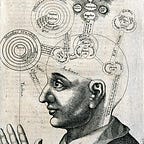Liberty And Negativity.
WHENEVER a person is perceived as being overly critical of a law or a person, the listener may accuse the person of being too negative or pessimistic. The person who accuses me of spreading negativity is actually being negative themselves in that they are looking to negate that which is relevant. If I stray from objective arguments that are called negative because they speak of unpleasant truths(such as slavery in Africa) and begin ranting about things that are trivial, then I have transitioned from objectivity to cynicism. Cynicism is wholly negative in that the cynic will look to negate all of what the world has to offer because it does not conform to the mal-formed ideas which are by-products of his temperamental interpretation of world problems so called. Pessimism differs from negativity in that it describes world problems from a metaphysically negative point of view. In other words, the pessimist believes the world is dark and vile in its nature whereas the negative person believes that the world ought to conform to his ideas of what is proper and sensible.
Pessimism, as it is commonly known, is a pathological weakness in-comparison to optimism which is generally regarded as a strength. Pessimism hampers autonomy when one looks at everything as a means-ends utility. The pessimist thinks he knows the nature of the world through conclusive generalizations that come from his subjective and temperamental conceptualizations of pleasure, pain, suffering, tragedy etc. He will not seek to enhance his self culture because he believes himself to be the meaningless offspring of an inherently flawed world. It is this notion of meaninglessness/existential dread which makes him believe that he has a higher understanding of world problems when he actually has a limited understanding because leads with his temperament as opposed to his minds eye. The mind represents a positive holism because of its inherent neutrality whereas the temperamental personality; which is the tendency to not only behave angrily, but to form ideas about the nature of things that have the mark of the persons temperament on them, has within it a crude holism due to its subjectively entrenched world view. This world view subsequently stifles practical reason in that the pessimist prefers to stay within his subjective rationalizations in which he states that he should not act on curing his vices because the world itself is filled with vice.
To objectively negative is to talk openly about dark truths(such as different types of criminality) without imposing pessimistic assertions on the world. If we were to take our pessimistic assertions about the world away, as if we were viewing the world through a subjective lens, and just look at the world as it is in that we simply view certain practices as unfair and cruel without seeing it as a by product of a vile world, then we can stay focused on objectivity without distraction. For instance, an actress in an interview stated that she was helping dig wells and to help bring people out of slavery in Africa. This actress had would could be described as a “positive” or “enthusiastic” attitude who was able to make a dark truth palatable by conveying it in a style that people perceive as hopeful and normative in that people admire those who act on their moral obligations. Helping people escape slavery is a moral obligation which differs from a moral conviction in that I do not need need to be substantially convinced that slavery is wrong. Everyone, at all times, has a duty to protect others who are on the receiving end of sadism. If a man (or a woman) is physically capable of fighting the slave owner, than he must fight. If the slave owner is too difficult in incapacitate, then he or she must not merely advocate that that slavery be abolished, but must implement strategies which can help people escape slavery. If most people were to use new methods of conveyance when speaking of negative truths(i.e. truths that are not talked about because they apparently negate the goodness of the world) in daily conversation, then people would perceive objectivity as opposed to negativity and pessimism as they are commonly understood.
Once we have an effective method conveying dark/negative truths, we can then begin implying that we must act upon the that truth(as long as that truth is a practical truth). The Gricean Theory of co-operation can be used as a guide:
Cooperative Principle. Contribute what is required by the accepted purpose of the conversation.
- Maxim of Quality. Make your contribution true; so do not convey what you believe false or unjustified.
- Maxim of Quantity. Be as informative as required.
- Maxim of Relation. Be relevant.
- Maxim of Manner. Be perspicuous; so avoid obscurity and ambiguity, and strive for brevity and order.(Implicature, Stanford Encyclopedia of Philosophy)
Maxim of Quality:
- X million numbers of Africans suffer under slavery.
- Children have developing immune systems(apodictically true), therefore they do not need a vaccine as if they had 3–4 underlying conditions( justified argument from comparison).
- Taxation is theft because it takes a persons money by force(apodictically true), the WE charity scandal, which is one of many scandals within the government, exemplifies why paying taxes should not be made mandatory(justified argument from comparison).
Maxim of Quantity:
The person need only cite authoritative sources(i.e. journals) as it relates to all three topics above. One does not need to be overly informative in casual conversation.
Maxim of Relation:
Relevant comparisons are made when one makes a declarative statements and then follows it up with consequential evidence. 1. Taxation is theft(declarative statement), 2. The WE Charity, unjustified corporate bailouts(consequences of coercion without explanation).
Maxim of Manner:
Obscurity and ambiguity can be avoided by making comparisons to replace technical terminology.
End.
